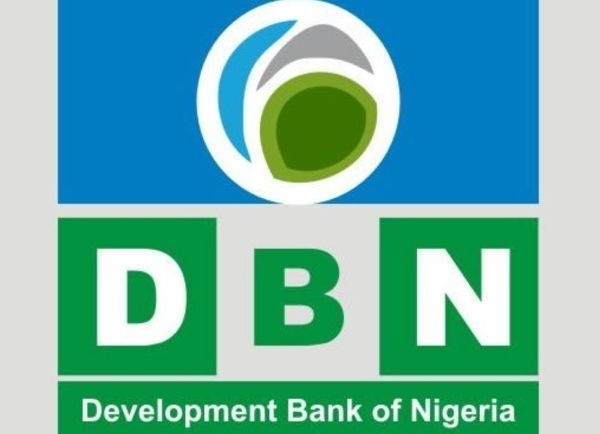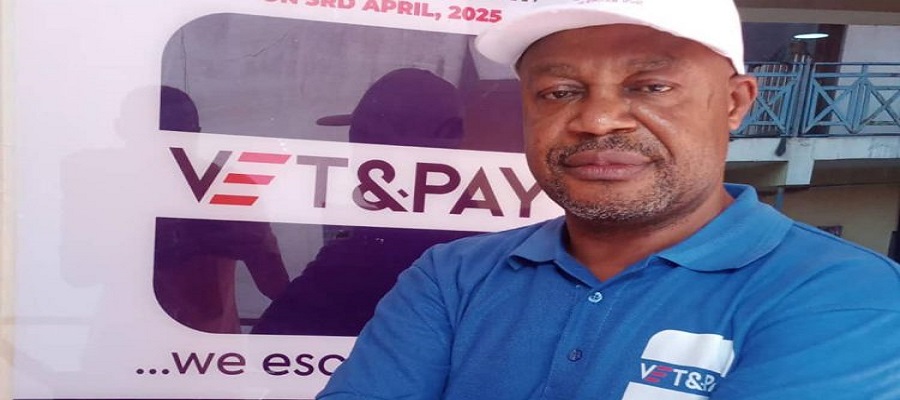E-Financial
DBN Urges MSMEs to Reinvent Business Model for Sustainability

In the light of prevalent economic realities of COVID-19 on businesses across the globe, Development Bank of Nigeria Plc (DBN) has advised Micro Small and Medium Enterprises in the country to reinvent their current business models for sustainability during the pandemic to enable them leverage growth opportunities for their businesses in the post COVID-19 era.

This was the takeaway from the panelists’ discussion at the DBN Webinar session which took place on Saturday May 9th, with the theme; “Alternative Financing Options for Sustainable Growth Post COVID-19 Lockdown”.
The Webinar series is aimed at providing capacity building and advisory services for MSMEs through digital platforms to ensure they are empowered to remain in business through this unprecedented period.
Panelists on the session include: Immediate Past President and Chief Executive Officer of Africa Finance Corporation and presently CEO & Partner, South Bridge Group, Mr. Andrew Alli; CEO of Emerging Africa Capital, Mrs. Toyin Sanni; Head SME, FCMB, Mr. George Ogbonnaya; and MD/CEO, Urban Shelter, Hajiya Sa’adiya Aliyu Aminu. The session was moderated by Chief Economist, Development Bank of Nigeria, Prof. Joseph Nnanna.
While dissecting the current implications of the pandemic on the Nigerian economy, the panelists pointed out that MSMEs are the hardest hit by the crisis, as they have limited access to capital and now have to depend on few customer base.
They however, stressed that this phase shall pass and only SMEs with innovative thinking and clear vision will be able to take advantage of the new normal.
“If you are an SME, the framework should be to survive the crisis period, have as much liquidity as you can and stem expenditure. You must stabilize the business by stabilizing your cost and reconfiguring your operations.
“For instance, a five-star hotel in Lagos has outsourced their laundry and restaurant. You can now order takeaway and pickup of your laundry. The crisis will end, and we will return to a period of growth.
“A lot of things will likely change because of this pandemic. So, you also need to prepare for that era. You have to be innovative, have a clear vision, be ahead of the curve to take advantage of the new normal,” said Andrew Alli.
On alternative sources of funding for MSMEs, George Ogbonnaya stated that investors will be frugal in the post COVID-19 era and will only be attracted to businesses that align purpose with strategic direction. He listed alternative sources of funding to include: Crowdfunding, Venture lending, Data driven lending platforms and Risk-Sharing Guarantees.
On her part, Toyin Sanni admonished small business owners to ‘COVID-Proof’ their business, as quality and branded digital presence will stand as distinguishing factors in the present and post COVID-19 era.
“Quality and how you distinguish your brand from competitors will be very important. So, while saving as much as you can during this period, you should also invest in your brand and digitize your business.
I would like to use the term ‘COVID-Proof’ for your business. Redesign your business such that you are able to do an end-to-end i.e. client acquisition, provision of services, and monitoring and evaluation should involve digital models,” she said.
As an advisory, Sa’adiya Aliyu Aminu said being the major drivers, MSMEs will be crucial to reviving the Nigerian economy just like the sector did after the 2015 recession. She called on the Federal Government to reaffirm the made in Nigeria policy to promote local production and patronage and curb capital flight after the pandemic.
At the end of the webinar, it was adjudged by participants as one of the best in recent times as it touched and proffered solutions to most of the critical challenges facing MSMEs. More so, now in the COVID-19 era.
The Development Bank of Nigeria is a development finance institution, established by the Federal Government in collaboration with global development partners to address the major financing challenges facing Micro, Small and Medium Scale Enterprises (MSMEs) in Nigeria.
DBN carries out this function by providing financial institutions, predominantly Deposit-Money Banks, Microfinance Banks and other financial institutions with funding facilities designed to meet the needs of MSMEs.
E-Financial
TCL Launches ‘vetandpay’ to Combat Online Transaction Fraud

Tradewyse Concepts Limited (TCL), Nigeria-based technology solution provider has launched a product called “vetandpay” to address the issues of trust and fraud in online business transactions in the country.

Dr Kalu Ibe, founder and chief executive officer, Tradewyse Concepts Limited
Dr Kalu Ibe, founder and chief executive officer, Tradewyse Concepts Limited, stated that the software was proudly developed by a team of Nigerians.
Speaking at the product dedication ceremony in Abuja, Ibe explained that the app aims to reduce corruption by restoring trust and integrity. He added that it would inspire confidence in both business and the broader transactional environment in Nigeria.
“Today, I present vetandpay.ng, powered by Vetandpay Technologies Ltd, Africa’s foremost escrow company, a subsidiary of TCL,” Ibe said.
“What started as a spark two years ago is now shining brightly over Nigeria’s transactional space, bringing healing with its rays.”
He outlined the various escrow services offered, including auto purchase escrow, procurement escrow, service-based escrow, e-commerce escrow, and property escrow, with more services expected to be added.
Ibe emphasised that the service is available to Nigerians both at home and abroad, promising zero losses in all business transactions when using vetandpay.
Through its Corporate Social Responsibility (CSR) programme, TCL plans to initiate a comprehensive tech training programme for teenagers in Nigerian schools. Ibe highlighted that the initiative aims to equip young people with technological skills, preparing them to enter the digital economy and drive innovation.
Ntufam Ugbo, project director, commented that vetandpay is transforming the business landscape in Nigeria by building trust between buyers and sellers.
“What vetandpay does is act as a middleman between the buyer and the seller,” she said.
Mrs Rachel Samuel, head of Customer Service at vetandpay, described the platform as a secure payment solution designed to eliminate fraud in online transactions.
“Our basic goal is to address the issue of receiving something different from what was ordered,” she explained.
Referring to a report by the Federal Trade Commission, Samuel pointed out that consumers lost over 8.8 billion dollars to fraud in 2022, a 30 per cent increase from the previous year. She noted that with vetandpay, both parties to a business transaction could have peace of mind and zero losses.
She encouraged Nigerians to embrace the services provided by the platform by downloading the vetandpay app and using the technology to secure their transactions.
‘‘Today marks the beginning of a new era in secure online transactions. Whether you are a business owner, freelancer, or everyday buyer, vetandpay is here to protect your hard-earned money,” Samuel concluded.
E-Financial
FG Asks World Bank for Fresh $10.50m Loan to Enhance CBN Technical Capacity

Nigeria has approached the World Bank for a fresh $10.50m loan to enhance the Central Bank of Nigeria’s (CBN) technical capacity and modernise the country’s domestic payment infrastructure.

Olayemi Cardoso, Governor, Central Bank of Nigeria
According to information on the World Bank website on Thursday, the proposed CBN Technical Assistance Facility seeks to support integrating innovative technologies and data science into the CBN’s supervisory processes.
This is expected to help the apex bank tackle long-standing and emerging challenges in Nigeria’s rapidly evolving financial landscape while improving the domestic payment infrastructure for remittances.
The project, currently at the concept review stage, will focus on three key areas. Firstly, it aims to strengthen the CBN’s institutional capacity to keep pace with technological advancements through a robust governance framework, expert advisory support, peer-to-peer central bank exchanges, and modernisation of the CBN’s internal processes to align with the digital era.
Secondly, it will enhance the CBN’s supervisory capacity through technology and data improvements. This involves funding modern technical solutions, including Supervisory Technology systems, to improve data accuracy, operational efficiency, and risk-based supervision.
Thirdly, it aims to modernise domestic payment systems for remittances to improve their safety and reliability.
It will explore innovative methods to attract informal remittance flows into formal channels while conducting annual surveys on remittance households and fostering peer-to-peer learning for knowledge exchange.
According to the World Bank, the objective of this project is “to strengthen technology-enabled, data-driven, risk-based supervision at the CBN and improve domestic payment infrastructure for remittances in Nigeria.”
The project aligns with the government’s pursuit of a cashless economy and the increasing adoption of digital financial services in Nigeria.
The scheme, which has a commitment amount of $10.50m, is scheduled for board presentation approval on June 12, 2025. The implementing agency is the Central Bank of Nigeria.
E-Financial
Sterling Bank Makes Online Transfer Charges Free of Charge

Sterling Bank has called for the cancellation of bank transfer fees by major banks, announcing it will no longer take any money for itself for any local online transactions by its customers.

The announcement, made on April 1st, initially sparked widespread arguments, with many assuming it was a marketing prank tied to April Fools’ Day.
However, Sterling Bank, in a statement, has confirmed that it is not a stunt, that the zero-transfer-fee policy was real, and effective immediately.
With this move, Sterling becomes the first major Nigerian bank to take a definitive stand against the long-standing practice of charging customers for everyday digital transfers, an issue that has grown increasingly contentious as digital banking adoption deepens.
“We believe access to your own money shouldn’t come with a penalty,” said Obinna Ukachukwu, growth executive leading the Consumer and Business Banking Directorate, Sterling Bank
“This is more than a financial decision, it’s a values-based one. It reflects our commitment to making banking fair, inclusive, and truly customer focused.
“We’re not yet the biggest bank in Nigeria, but we’ve been the boldest,” Ukachukwu added.
“Sterling fearlessly believes in the future of Nigeria, and this is us backing Nigerians with more than words,” it sated.
Under the new policy, Sterling customers will enjoy free transfers for all local transactions conducted via the bank’s mobile app. This translates into significant savings, particularly for individuals and new small business owners who make frequent daily transfers.
The bank’s latest move has been met with widespread public approval, sparking positive reactions across social media and placing pressure on industry peers to follow suit.
We’re proud to lead this change,” Ukachukwu added. “We hope it inspires others to think differently about what customers truly need from their banks, not just in services, but in values.”

 News1 day ago
News1 day agoUS Cancels Visas for All South Sudanese Passport Holders

 News1 day ago
News1 day agoAOT Issues Bench Warrant against Sanusi, Aero Contractors MD

 News1 day ago
News1 day agoMeningitis Outbreak Kills 151 in Nigeria – NCDC

 News1 day ago
News1 day agoAfrimash Launches USSD Code to Revolutionize Poultry Farming and Combat Counterfeit Farm Produce

 News1 day ago
News1 day agoSERAP Calls on Tinubu to Reject $1.08Bn Loan, Probe Missing Funds

 News1 day ago
News1 day agoNigeria’s Debt Escalates to N144.67 Trillion, Fueled by Borrowing Surge

 General News1 day ago
General News1 day agoUniversity Don Seeks Ban of Smartphones, Social Media in Schools

 General News1 day ago
General News1 day agoAmid Rising Investor Confidence in Nigeria, Woodhall Capital Foundation Trains Captains of Industry















